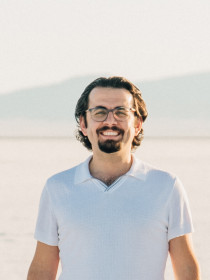
Mehmet Soyer
Connect with Mehmet
About Mehmet
Soyer is an environmental sociologist with an interest in social inequality. Soyer's research agenda consists of examining the critical link between community response and the impacts of energy development through collective behavior, activism, and environmental inequality. Soyer is also interested in pedagogical research to work on how to enhance safe and brave spaces for exploring perceptions of marginalized groups.
Contributions
In the News
Publications
Discusses how environmental studies about natural resource issues are often studied as conflicts; this book is carefully designed to expound on how resolutions are negotiated and maintained. Outlines that a number of factors influence how conflicts are framed and how resolutions are determined regarding fracking, shared waters and environmental threats. Explores the power, community activism, and politics regarding natural resources.
Studies the power struggle of two rival groups (Frack Free Denton and Denton Tax Payers for a Strong Economy) over fracking in Denton. Questions how each of these groups challenges the claims-making activities and goals of their adversaries? Finds that the new theoretical framework model is germane to many features of claims,” “claims-makers,” and “claims- making activities.
Elaborates that at the core of the hydraulic fracturing (fracking) debate is the level of perceived risk involved with extractive industries, such as the release of toxic and carcinogenic chemicals, increased population growth, and truck traffic. Allows for a more comprehensive understanding of how fracking can impact the socio-psychological well-being of the community.
Conveyes that Pro- and anti-fracking groups maintained an attachment to and ownership of the local land and engaged in harsh “othering” discourse to describe the opposing group. Contributes to scholarly understandings of the relationship(s) between public perceptions of hydraulic fracturing, land use, and proximity.